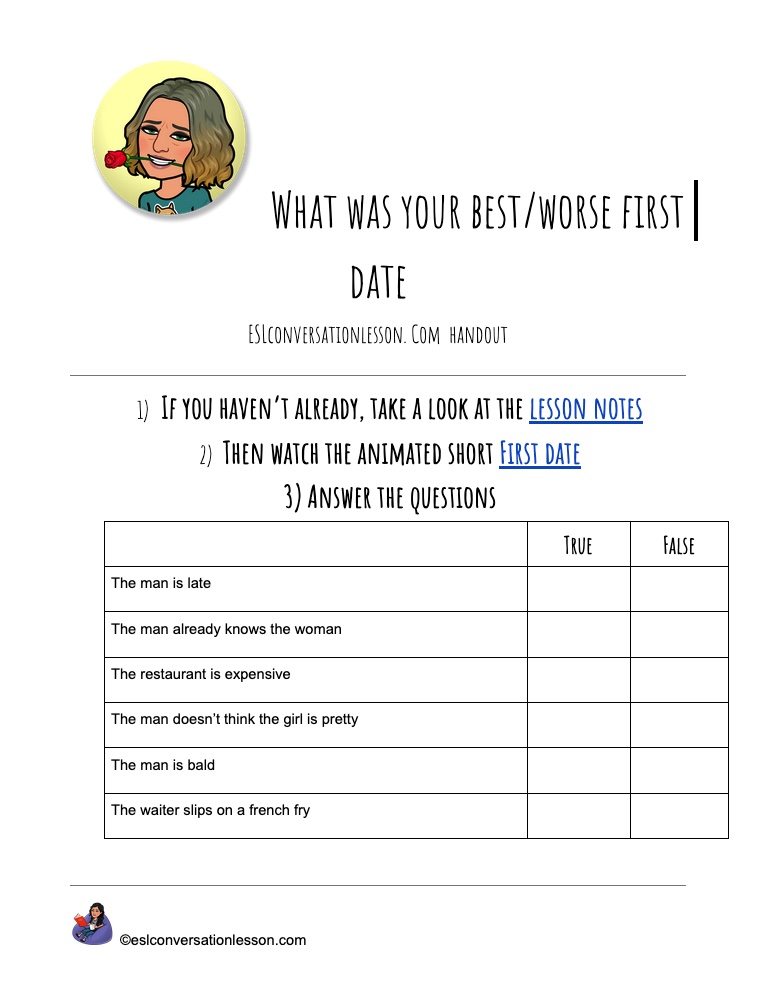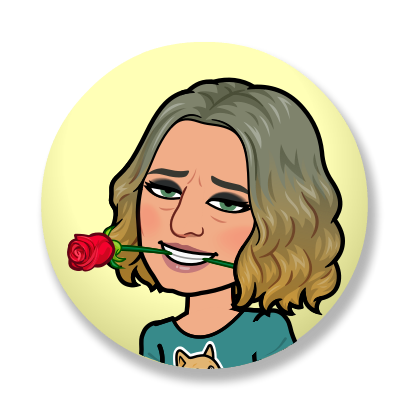- Level A1, A2, B1
- Exercise: video with questions and discussion
- Language focus: past tense verbs, embarrassing situations
- Media: video
Awkward!
It’s been a long time since I’ve been on a first date. And frankly, I don’t miss them. There are so many ‘what if’s’. What if we have nothing to talk about? What if I’m boring? What if I don’t like him? What if he is the one? What if he is a sloppy eater? What if he is a lousy tipper? I remember my mind ping-ponging with random thoughts and situations that would probably never actually happen. It’s a mix of nerves and excitement, but it mostly it puts us in a rather vulnerable state where we are exposed and not fully in control.
Awkward silences, clumsy interactions, you just hope you can reach that moment where you can find something to connect over. Nonetheless, First dates can also produce some funny stories worth sharing.
Don’t mess it up
Splattered spaghetti on your white shirt? Spit out nonsense words instead of an actual sentence? Or perhaps you decided to break into a brand new pair of shoes that left you hobbling by the end of the night? Or worst of all, you meet an ex while on your date. I’m sure if you think about it, you can find all kinds of little horror stories that make for good memories.
Exercise
Work through the statements on this sheet and then take a look at the video to gather some of the key vocabulary.

The Video: “First Date” by First Date Team
Your turn
Check out this list of first-date mishaps and have your students draw inspiration or choose scenarios that may have happened to them. The first link features actual Tweets from real people. Some are hilarious.
- 81 Hilarious First-Date Disasters That Will Make You Laugh
- 15 First Date Mistakes You Should Avoid (Psychology Today)
- 50 First Date Ideas that Are Actually Really Good (Good Housekeeping)
- 25 First-Date Dos and Don’ts (Glamor Magazine)
Ask your students to prepare a little anecdote with some detail.
- What were you wearing? What was the other person wearing?
- Where did you go?
- What did you eat?
- What was your first impression?
- What did you talk about?
- What happened that was funny or embarrassing?
- How did you both respond? (laugh, get embarrassed, ignore the situation, etc.)


